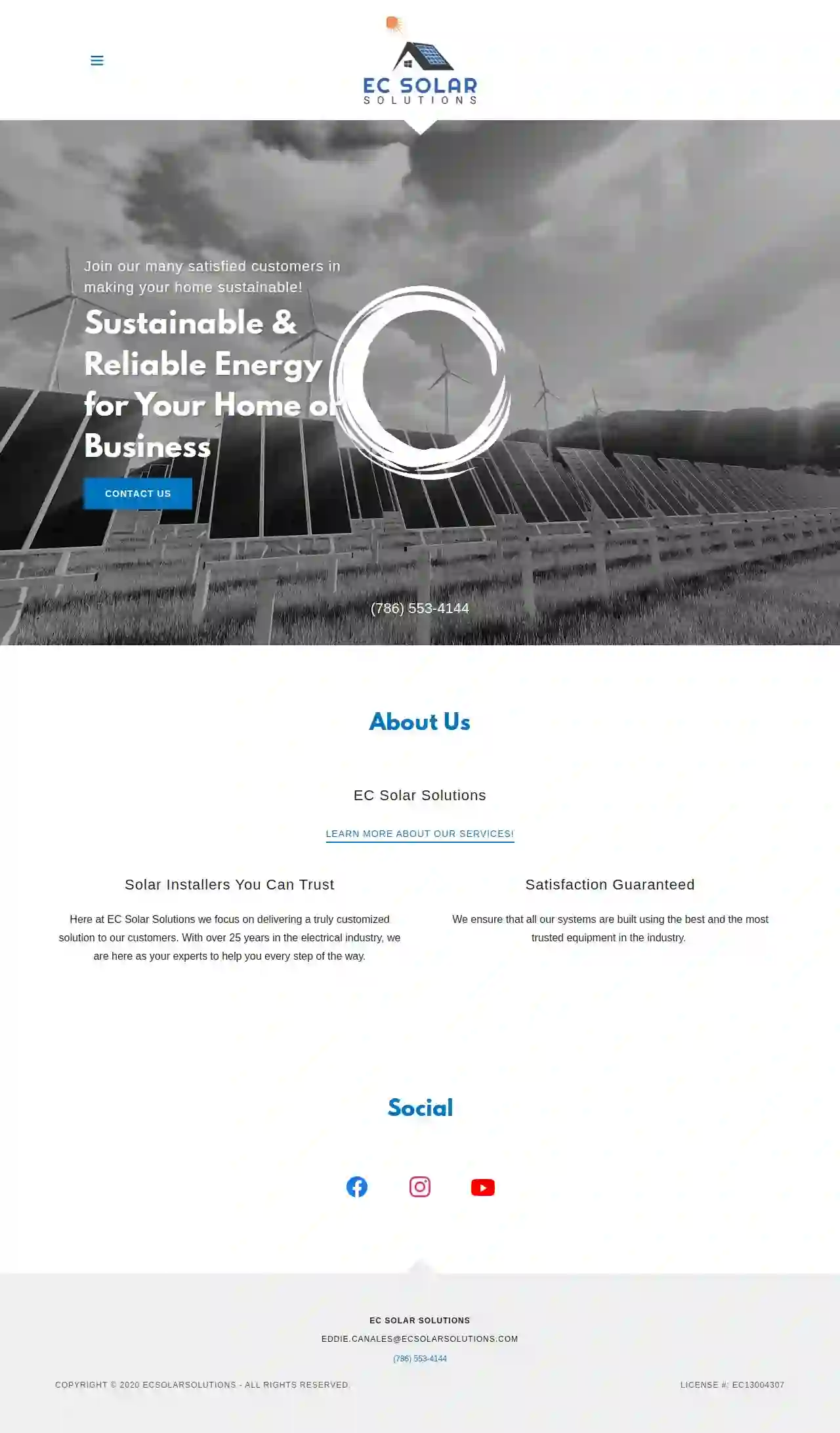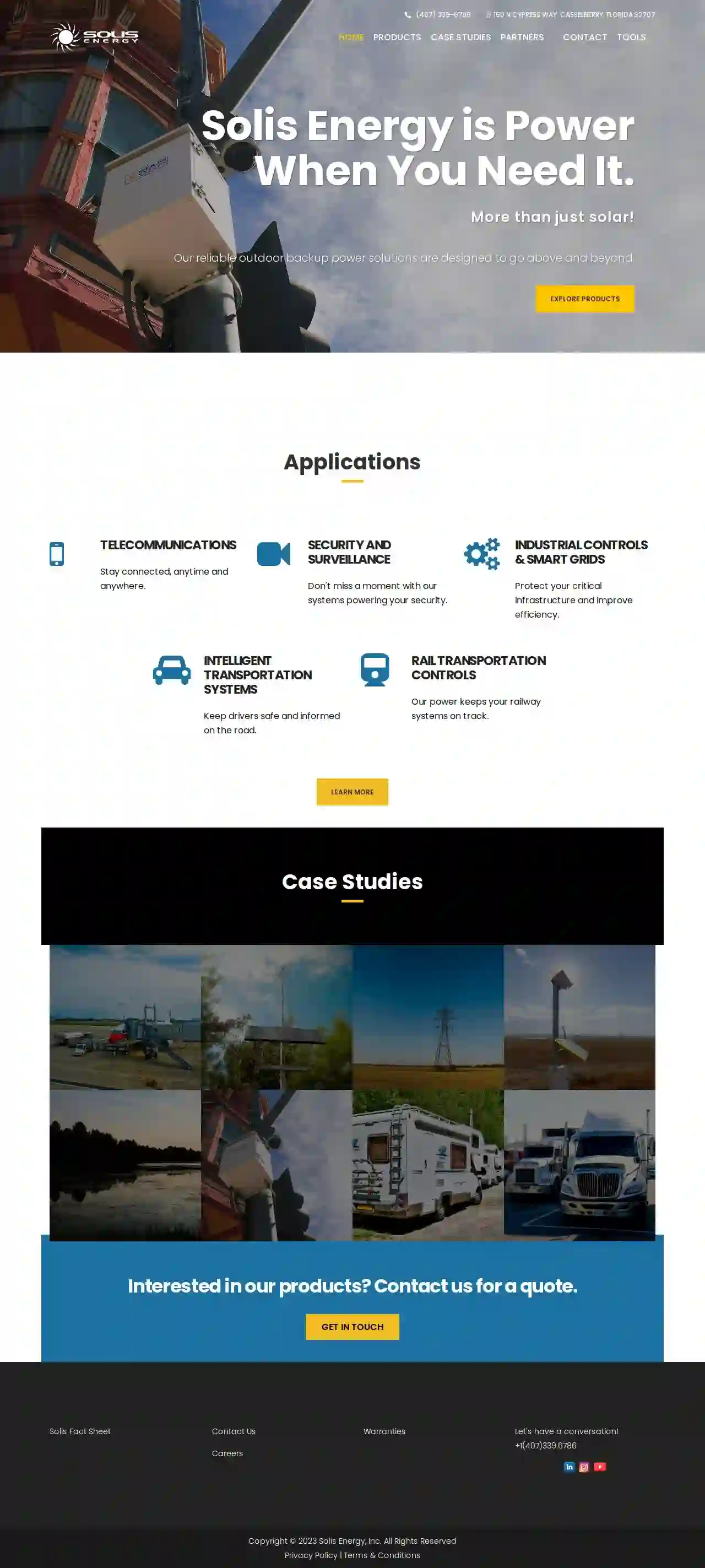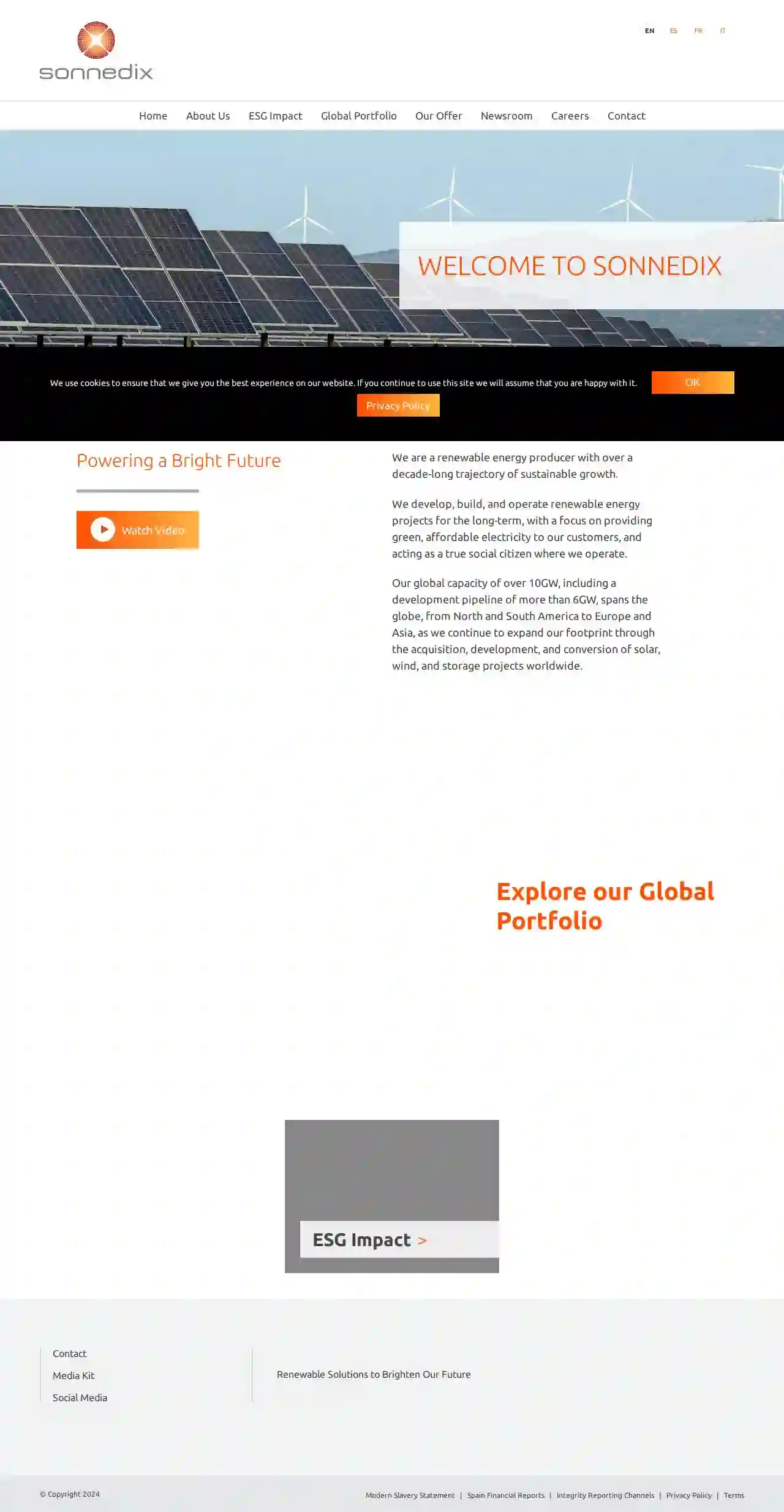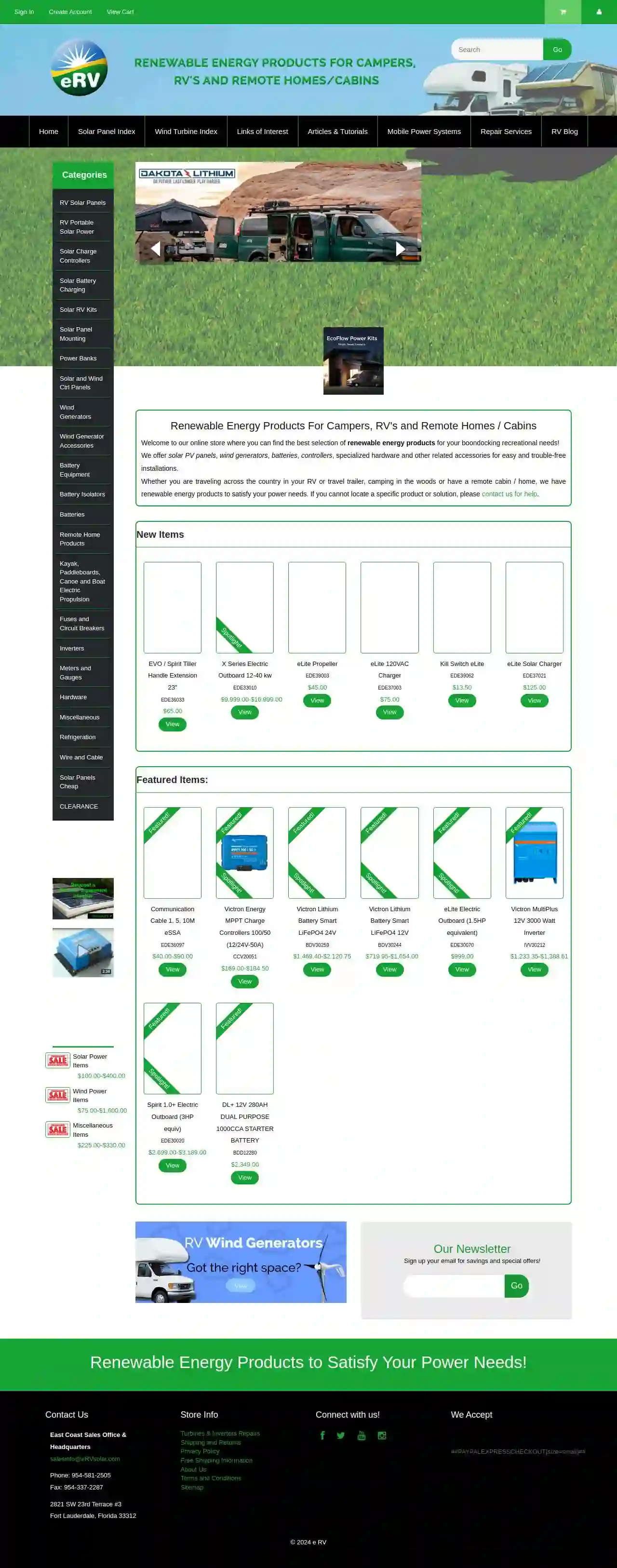Commercial Solar Installers Tallahassee
Find the best Business Solar Installers in Tallahassee
Get multiple Commercial Solar Energy quotes for your project today! Compare profiles, reviews, accreditations, portfolio, etc... and choose the best offer.

WattSun Solar and Roofing
4.9104 reviews2578 Clark St., Suite 5A, 2578 Clark St. Suite 5A, Apopka, 32703, USWattSun Solar and Roofing is a local, family-owned business dedicated to providing personalized and customer-centric solar and roofing solutions. With a vested interest in maintaining a strong reputation, we prioritize attentive service, tailored solutions, and ongoing support. Our team of experts is committed to exceeding expectations and building lasting relationships with our clients.
- Services
- Why Us?
- Accreditations
- Our Team
- Testimonials
- Gallery
Get Quote
ProSolar Orlando
4.7104 reviewsWilton Manors, FL, United States, 1100 W Oakland Park Blvd Unit 8, 33311, USProSolar Florida is a leading provider of solar energy solutions, offering a range of services including residential and commercial solar energy, net metering, roof installation, solar reinstallation, Tesla Powerwall certified installer, Tesla Solar Roof, and Duracell Powercenter. With a focus on sustainability and energy independence, ProSolar Florida aims to help individuals and businesses transition to cleaner energy sources.
- Services
- Why Us?
- Accreditations
- Our Team
- Testimonials
- Gallery
Get Quote
EC Solar Solutions
56 reviews123 Solar Street, Miami, FL, 33101, USEC Solar Solutions focuses on delivering a truly customized solution to our customers. With over 25 years in the electrical industry, we are here as your experts to help you every step of the way. We ensure that all our systems are built using the best and the most trusted equipment in the industry.
- Services
- Why Us?
- Accreditations
- Gallery
Get Quote
Solis Energy
52 reviewsCasselberry, Florida, 150 N Cypress Way, 32707, USSolis Energy is Power When You Need It. More than just solar! Our reliable outdoor backup power solutions are designed to go above and beyond.
- Services
- Why Us?
- Accreditations
- Our Team
- Testimonials
- Gallery
Get Quote
Sunlight Solar
4.6451 reviewsN/A, 1106 W Central Blvd, Orlando, 32805, USSunlight Solar is a family owned and operated solar company with over 40 years of field experience. They offer site specific system design, consulting with any question or concern, handling all of their own installations, permitting process and interconnection processes. Their customer service support is always ready to handle any situation and guarantees satisfaction on systems installed by Sunlight Solar.
- Services
- Why Us?
- Accreditations
- Our Team
- Testimonials
- Gallery
Get Quote
Bob Heinmiller Solar Solutions
4.578 reviews1519 Bldg 1 W. Smith Street, Orlando, 32804, USBob Heinmiller Solar is a leading provider of solar solutions in Orlando, offering comprehensive solar systems for homes and businesses. With over 20 years of experience, they provide customized solar solutions tailored to specific energy needs. Their services include solar pool heating, solar pool pumps, solar PV systems, and solar water heaters. They use top-quality solar products from reputable manufacturers and offer a commitment to providing high-quality installation services.
- Services
- Why Us?
- Accreditations
- Gallery
Get Quote
Sonnedix USA Services Limited
53 reviewsMadrid, Spain, C/ Principe de Vergara 108, 28002, USSonnedix is a leading international renewable energy producer with over a decade-long trajectory of sustainable growth. They develop, build, and operate renewable energy projects for the long-term, focusing on providing green, affordable electricity to customers and acting as a true social citizen where they operate. Their global capacity of over 10GW spans the globe, from North and South America to Europe and Asia, as they continue to expand their footprint through the acquisition, development, and conversion of solar, wind, and storage projects worldwide.
- Services
- Why Us?
- Accreditations
- Our Team
- Testimonials
- Gallery
Get Quote
eRV
32 reviews2821 SW 23rd Terrace, #3, 2821 SW 23rd Terrace #3, Fort Lauderdale, 33312, USWelcome to our online store where you can find the best selection of renewable energy products for your boondocking recreational needs! We offer solar PV panels, wind generators, batteries, controllers, specialized hardware and other related accessories for easy and trouble-free installations. Whether you are traveling across the country in your RV or travel trailer, camping in the woods or have a remote cabin / home, we have renewable energy products to satisfy your power needs. If you cannot locate a specific product or solution, please contact us for help.
- Services
- Why Us?
- Accreditations
- Our Team
- Testimonials
- Gallery
Get Quote
Krannich Solar Southeast, LLC
51 reviews820 SOUTH RONALD REAGAN BLVD, SUITE 110, Longwood, 32750, USKrannich Solar Southeast is a specialist wholesaler of PV and Storage, established in 2021 in Longwood, Florida. We are an expert partner and ally to all of our customers on the Southeast Coast out of the state of Florida, which is known as the sunshine state. By the end of Q1 of 2024, we've grown by a third warehouse and up to 20 employees. We work in a familiar and dynamic environment and we share the Krannich vision of a 100% renewable future!
- Services
- Why Us?
- Accreditations
- Our Team
- Testimonials
- Gallery
Get Quote
Solar Scott
123 Solar Street, Fort Lauderdale, FL, 33301, USAll Phase Solar Panels Fort Lauderdale is a full-service solar company that has been providing quality solar services to residents of Fort Lauderdale, FL for years. We are dedicated to helping our customers save money and reduce their carbon footprint by installing high-quality solar panels on their homes and businesses. We offer a wide range of solar services, from residential installation to commercial installation, and we are always here to help our customers find the best solution for their needs.
- Services
- Why Us?
- Gallery
Get Quote
Over 4,210+ Solar Installers on our directory
Our solar companies operate in Tallahassee & surroundings!
SolarCompaniesHub has curated and vetted Top Solar Installers arround Tallahassee. Find a reliable pro today.
Frequently Asked Questions About Commercial Solar Installations
- Reduce Carbon Footprint: Solar energy helps mitigate climate change by reducing carbon dioxide and other greenhouse gas emissions associated with traditional fossil fuel-based electricity generation.
- Improve Air Quality: Solar energy does not produce air pollutants, such as sulfur dioxide or nitrogen oxides, which contribute to smog, acid rain, and respiratory problems.
- Conserve Water Resources: Solar energy production does not require water, unlike traditional power plants, which often consume significant amounts of water for cooling.
- Reduce Land Use Impact: While solar installations do require land, they can be integrated with existing structures (rooftops) or placed on underutilized land, minimizing environmental disruption.
- Full Retail Net Metering: The most favorable policy, where you receive full retail credit for excess solar energy sent to the grid. This means you get the same price for the electricity you sell back as you pay for the electricity you buy from the utility.
- Time-of-Use (TOU) Net Metering: The value of the credits you earn varies depending on the time of day you export electricity to the grid. Higher credits are typically offered during peak demand periods.
- Net Billing: You receive a lower rate for excess solar energy than the retail rate you pay for electricity.
- Feed-in Tariffs (FITs): A separate meter is used to measure the solar energy you export to the grid, and you are paid a fixed rate per kilowatt-hour for this energy, which may be different from the retail electricity rate.
- You pay a fixed monthly lease payment for the use of the solar system.
- You do not own the system.
- You are responsible for maintenance and repairs.
- You typically do not benefit from tax incentives or depreciation.
- You purchase the electricity generated by the solar system at a fixed rate per kilowatt-hour (kWh).
- You do not own the system.
- The third-party owner is responsible for maintenance and repairs.
- You may not be eligible for all tax benefits.
What is a net metering agreement, and why is it important?
How do commercial solar panels affect the environment?
Are there different types of net metering policies?
What is the difference between a solar lease and a PPA?
Solar Lease:
PPA:
What is a net metering agreement, and why is it important?
How do commercial solar panels affect the environment?
- Reduce Carbon Footprint: Solar energy helps mitigate climate change by reducing carbon dioxide and other greenhouse gas emissions associated with traditional fossil fuel-based electricity generation.
- Improve Air Quality: Solar energy does not produce air pollutants, such as sulfur dioxide or nitrogen oxides, which contribute to smog, acid rain, and respiratory problems.
- Conserve Water Resources: Solar energy production does not require water, unlike traditional power plants, which often consume significant amounts of water for cooling.
- Reduce Land Use Impact: While solar installations do require land, they can be integrated with existing structures (rooftops) or placed on underutilized land, minimizing environmental disruption.
Are there different types of net metering policies?
- Full Retail Net Metering: The most favorable policy, where you receive full retail credit for excess solar energy sent to the grid. This means you get the same price for the electricity you sell back as you pay for the electricity you buy from the utility.
- Time-of-Use (TOU) Net Metering: The value of the credits you earn varies depending on the time of day you export electricity to the grid. Higher credits are typically offered during peak demand periods.
- Net Billing: You receive a lower rate for excess solar energy than the retail rate you pay for electricity.
- Feed-in Tariffs (FITs): A separate meter is used to measure the solar energy you export to the grid, and you are paid a fixed rate per kilowatt-hour for this energy, which may be different from the retail electricity rate.
What is the difference between a solar lease and a PPA?
Solar Lease:
- You pay a fixed monthly lease payment for the use of the solar system.
- You do not own the system.
- You are responsible for maintenance and repairs.
- You typically do not benefit from tax incentives or depreciation.
PPA:
- You purchase the electricity generated by the solar system at a fixed rate per kilowatt-hour (kWh).
- You do not own the system.
- The third-party owner is responsible for maintenance and repairs.
- You may not be eligible for all tax benefits.